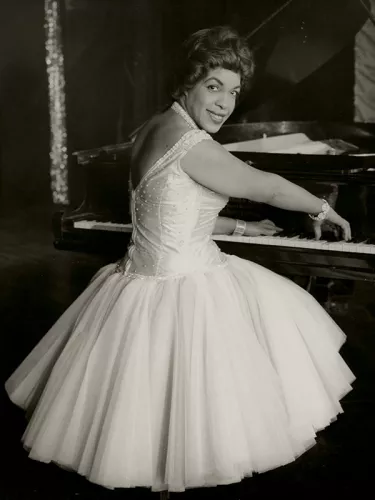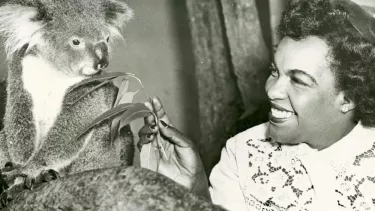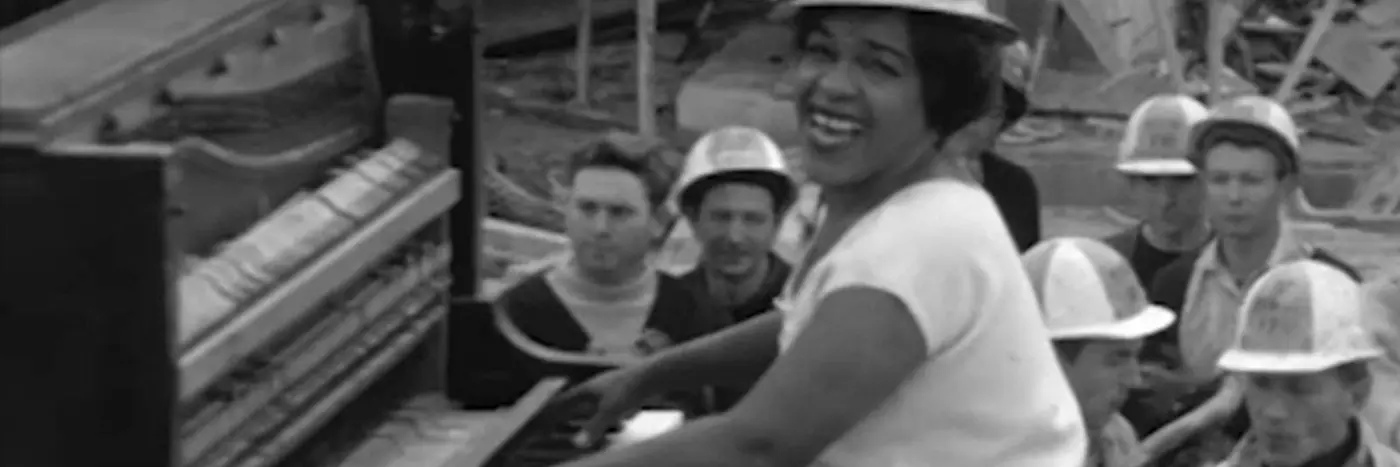Meet Winifred Atwell, the first woman to play the Opera House
Although music did not begin resounding within the Concert Hall until its official opening in 1973, the Opera House hosted several music performances before the iconic building was complete.
Construction workers were given a preview of what the finished performing arts centre would eventually stage when Winifred Atwell, the popular ragtime and honky-tonk pianist from Trinidad and Tobago, became the first woman and pianist to play at the Opera House.
Atwell was a transnational musical figure who advocated against anti-black racism in every country she lived in, including Aboriginal rights in Australia. ‘The Amazing Miss A’ surpassed the racism of the ‘White Australia’ era to become one of the greatest ragtime pianists of her time.

Not only is this performance a rare snapshot into popular music culture of 1960s Australia but it highlights the success story of one the first black music superstars in the Commonwealth. At the height of Winifred’s career, the ragtime icon was the highest paid star in Australia and the United Kingdom, and had insured hands worth 40,000 pounds that prohibited her from washing dishes.
Born and raised in Trinidad, Atwell was a qualified pharmacist before quitting to pursue her passion for music. She travelled to the United States to study under Russian-American pianist Alexander Borovsky before studying at London’s Royal Academy of Music. While studying she played at clubs and even opened one of the first black hair salons in Brixton.
Her big break came with ‘Black and White Rag’, a song recorded on a 70 year old honky-tonk piano bought by her husband after Atwell declared the first recording didn’t sound right on a grand piano. This upright, slightly out of tune piano with non functioning keys and exposed strings was known as her ‘other piano’ and became Atwell’s signature instrument. It travelled with her on international tours in Italy, Austria and Las Vegas.

She came to immense celebrity through the 1950s – the golden age of ragtime and honky-tonk. Before the birth of rock and after the wake of World War II, the obsession with the energetic, off-beat genre catapulted Atwell to fame. She broke numerous chart-topping records in both Australia and the UK including two No. 1 records and a string of Top 10 hits in the 1950s. The legendary pianist Elton John declared Atwell as one of his biggest idols when they met in Australia in the 1960s.
In 1955, Jack Neary, the Australian tour manager of The Beatles brought Atwell to Australia. Unable to ship her trademark instrument with her, he found a honky-tonk piano locally which she played across Australia including at her Opera House performance in 1964. The piano resided at the House for years, appearing in on-and-off performances before returning to Atwell’s family.
Discover more about Winifred Atwell in the National Film & Sound Archive's online collection.
